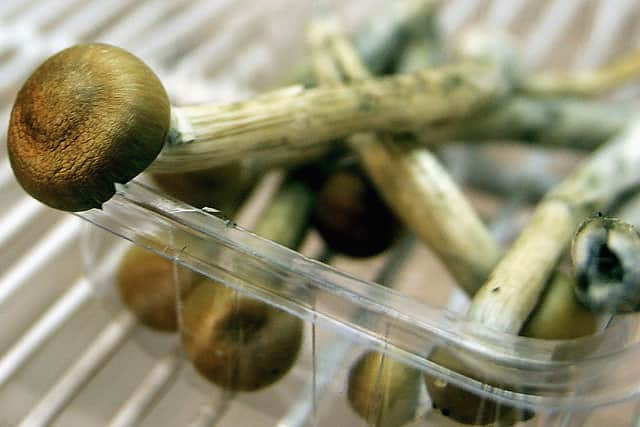Can depression be treated by psychedelic drugs? UK clinical trials underway under new rules post-Brexit
and live on Freeview channel 276
British company Small Pharma is leading the first regulated trial for psychedelic therapies which could be used to treat conditions such as depression.
Following Brexit, several companies have been approved to test various treatments under new rules been drawn up since the UK left the European Union.
Advertisement
Hide AdAdvertisement
Hide AdIt could mean that the use of psychedelic drugs to treat depression may become a standard treatment within five years.


Why has Brexit allowed for new treatments?
The Medicines and Healthcare products Regulatory Agency (MHRA) created the Innovative Licensing and Access Pathway (ILAP) with the aim to speed up the time it takes to get new medicines to patients.
The “Innovation Passport”, a new medicine designation, will be awarded to innovative products submitted to the ILAP.
When introducing the ILAP in January 2021, Lord Bethell, Minister for Innovation at the time, said: “We are absolutely determined to make sure UK patients can access the latest cutting-edge medicines as quickly as possible to help everybody live longer, healthier and happier lives.
Advertisement
Hide AdAdvertisement
Hide Ad“Now we have left the EU, we have the freedom to innovate and cut red tape to speed up the approval process for new treatments and ensure patient safety is at the heart of everything we do.
“The (licensing and access) pathway represents a totally new way of thinking and is a truly collaborative approach between the healthcare system, the pharmaceutical industry and patients with the common goal of getting the best products to the people who need them as safely and quickly as possible.”
What do the trails hope to do?
The trial with Small Pharma has been granted an ILAP along with other companies looking into psychedelic drugs, such as MDMA and magic mushrooms to help treat mental health issues like depression and Post Traumatic Stress Disorder (PTSD).
Small Pharma is leading the world’s first regulated trail, combing the hallucinogenic drug DMT (dimethyltryptamine) with psychotherapy in patients with major depressive disorder.
Advertisement
Hide AdAdvertisement
Hide AdReports of the trial’s findings are due in months and will involve 42 patients with depression, and will follow a phase-one trial in healthy volunteers.
Dr Carol Routledge, chief medical and scientific officer at Small Pharma, said she was hopeful that such therapies could soon become a standard way to treat depression, in a way that “got to the root cause” of the problem rather than just alleviating symptoms, The Telegraph reports.
Dr Routledge said psychedelic drugs offered great promise in the treatment of mental health problems, saying they could offer almost immediate benefits, compared with antidepressants - which can take up to three months to take full effect.
She said: “Based on initial data that we already have, and other companies have, there’s going to be a fairly immediate impact”
Advertisement
Hide AdAdvertisement
Hide Ad“In terms of the psychedelic experience, we’re talking about 20 minutes, and then the integration therapy afterwards, in a total two-and-a-half-hour session … we expect the antidepressant activity to be extremely durable … to last maybe three, four or five months”.
Another British start-up, Clerkenwell Health is due to start its trails next month, by using the same compound, psilocybin, to help people navigate depression, terminal diagnosis and quitting smoking.
Comment Guidelines
National World encourages reader discussion on our stories. User feedback, insights and back-and-forth exchanges add a rich layer of context to reporting. Please review our Community Guidelines before commenting.
